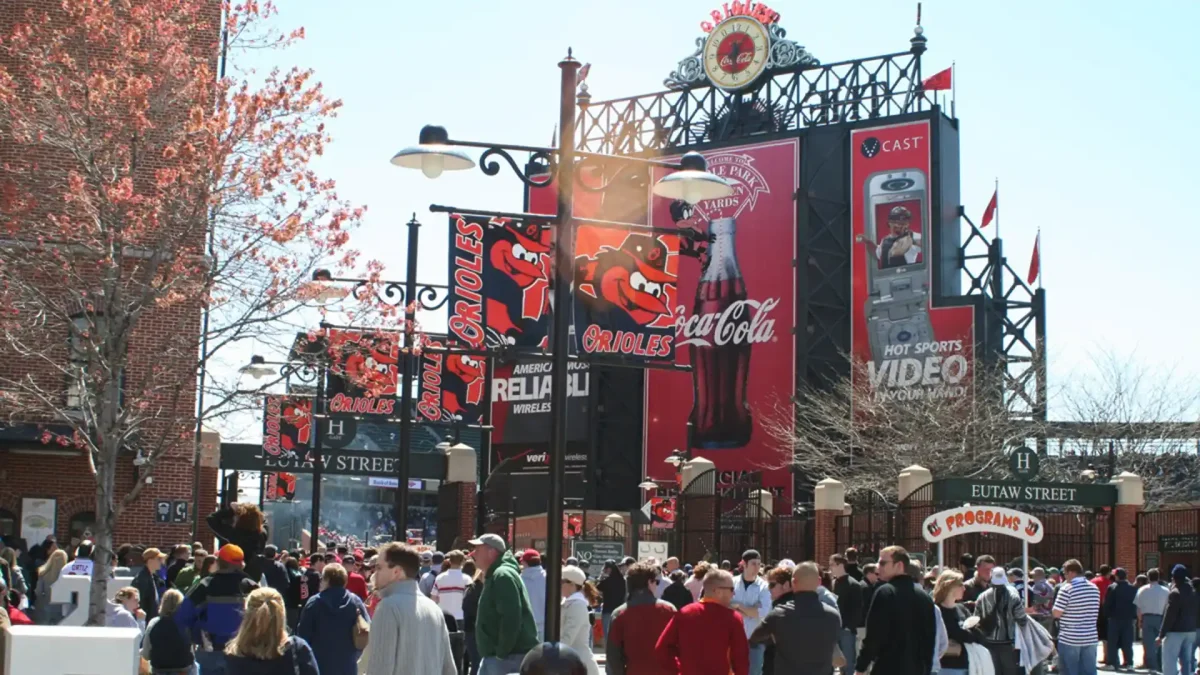Consumers in Maryland have saved an average of more than $2.4 million every year purchasing tickets below face value on ticket resale marketplaces, according to a report published this week by Protect Ticket Rights. The data, provided by resale analytics company Automatiq, showed savings of $16,455,426 over more than 334,000 ticket transactions between 2017 and January of 2024.
“Fans in Maryland currently enjoy the right to find huge savings by shopping around for tickets rather than being limited to the box office or its contracted ticket seller,” says Brian Berry, Advocacy Director of Protect Ticket Rights.
LEARN MORE | Report: Ticket Resale Saves Maryland Live Event Fans More Than $16 Million (PDF)
“This data show what I already knew and is the reason why I enjoy so many shows every year, because there are incredible deals to be found on the secondary resale market,” Berry continued. “Thanks to resale marketplaces, I’ve paid less than $10 for tickets originally sold for $70 because the ticketholder couldn’t use them and I was happy to pick them up at a bargain.”
Protect Ticket Rights released the data with the goal of challenging the rhetoric about ticket resale as Maryland’s General Assembly debates multiple proposed pieces of legislation concerning ticketing. Two of these bills would effectively grant Live Nation Entertainment and other event operators and ticketing agencies a legal monopoly over ticket sale and resale in the Old Line State by allowing them to declare resale competition unlawful. The bills, which are receiving enormous support from Ticketmaster and former Ticketmaster head Irving Azoff’s “Fix The Tix” astroturfing effort, are currently in the committee process and have not yet reached the floor of either body of the chamber.
LEARN MORE | “Fix The Tix” Has Same Priorities as Live Nation
If the bill currently introduced in Maryland passes, it would handicap Ticketmaster competitors in the state by not allowing ticketholders to set the resale price as they desire and by limiting reseller fees to 10 percent, leaving only behemoths like Ticketmaster free to charge whatever fees it desires when venues, artists, teams, and fans have no meaningful alternative other than Ticketmaster to ticket their events or from which to buy tickets. The bill applies many more restrictions to tickets already sold instead of focusing on the deception and abuse that manifest before tickets go on sale and when they go on sale by venues and primary ticketing companies. Strangely, in a debate where bots are often the focus of problems, the bills do nothing to require ticket sellers to report illegal bot use on their platforms to law enforcement.
The data released by Protect Ticket Rights showed clearly the counter-balance that ticket resale brings to the overall ticketing market. When box office prices are surged by “dynamic” and “platinum” ticket systems, consumers are forced to pay far above any nominal face value amount during the initial sales period. When plans change and the event date approaches, consumers use resale marketplaces to list tickets they can’t use for sale, which is where the savings come in.
Sports fans enjoyed the largest benefit from resale savings, paying $8.7 million less than face value according to the data. Concert purchases came in at $6.4 million in savings, with theater and arts events just shy of $1M.
As the report points out:
Ticket sales no longer work the way they used to. Instead of a general on-sale available to all fans, most tickets are slowly released on a staggered basis with absolutely no transparency as to how many tickets are actually put on sale so consumers can know their actual chance of getting a ticket. This deceptive practice – the original sin in ticketing – is not addressed in [the proposed legislation backed by the industry lobby].
Historically, ticket resale marketplaces have always shown that for every price sold above the original paid face value plus fees, there are an equal number sold below that amount – with variation depending on the event. The Maryland report is a direct echo of a similar report produced by the Coalition for Ticket Fairness that showed the significant savings available to consumers on the resale marketplace over a one year period between August 2022 and 2023. A Sports Fans Coalition study focusing on that segment of resale showed consumer savings on resold sports tickets at around $25 million per year.
LEARN MORE | 7 Million Fans Bought Tickets Below Face Value on Resale Sites
LEARN MORE | Resale Tickets Saved Sports Consumers Avg. $25 Million a Year
Rather than this natural equilibrium brought about by the market, industry advocates are pouring millions into lobbying for legislation that would enable harsh regulations aimed at crippling independent ticket resale marketplaces at the expense of those owned by event promoters and teams. Live Nation Entertainment’s stated legislative agenda (echoed by the “indie” Fix The Tix group headed by Azoff affiliates) prioritizes allowing rights-holders to declare Ticketmaster or other primary marketplace vendors’ competitors effectively illegal. Per Pollstar’s coverage linked above, that focus has shifted from the federal level to states like Maryland.
In the release accompanying the data from the study, Protect Ticket Rights outlines that its issues with the proposed legislation in Maryland are not absolute. There are “some worthwhile and positive consumer protections that can build upon the state’s already pro-consumer ticket sales laws,” though the punitive measures the legislation would take against anyone selling tickets outside of the industry-controlled platforms are fully unpalatable even with the potential addition of positives like “all-in” pricing transparency.
“Lawmakers in Annapolis have more than 16 million reasons to protect Marylanders’ rights to freely buy and sell tickets as they wish, including their ability to resell tickets they already paid full price for, whether they sell them for more or less than they originally paid,” says Berry. “The idea that Maryland lawmakers might slap a ticketholder with fines up to $25,000 for selling a pair of tickets at a price where they make some profit is beyond absurd and is a scheme driven by for-profit players in the system seeking more control.”




